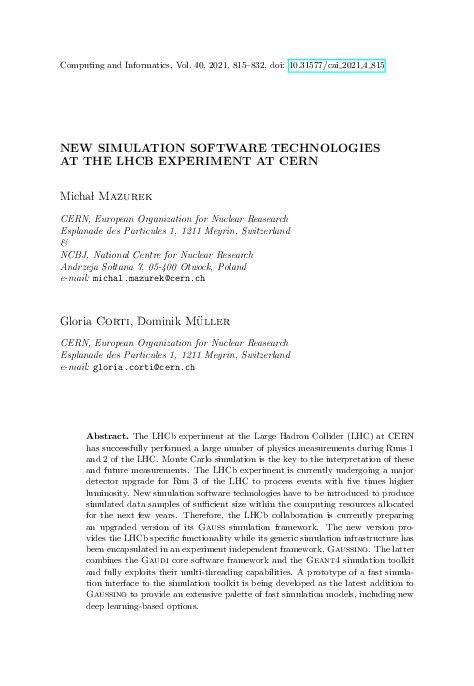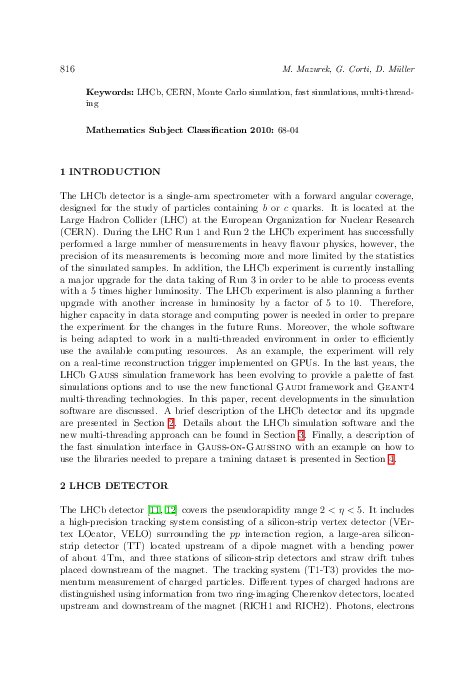New Simulation Software Technologies at the LHCb Experiment at CERN
keywords: LHCb, CERN, Monte Carlo simulation, fast simulations, multi-threading
The LHCb experiment at the Large Hadron Collider (LHC) at CERN has successfully performed a large number of physics measurements during Runs 1 and 2 of the LHC. Monte Carlo simulation is the key to the interpretation of these and future measurements. The LHCb experiment is currently undergoing a major detector upgrade for Run 3 of the LHC to process events with five times higher luminosity. New simulation software technologies have to be introduced to produce simulated data samples of sufficient size within the computing resources allocated for the next few years. Therefore, the LHCb collaboration is currently preparing an upgraded version of its Gauss simulation framework. The new version provides the LHCb specific functionality while its generic simulation infrastructure has been encapsulated in an experiment independent framework, Gaussino. The latter combines the Gaudi core software framework and the Geant4 simulation toolkit and fully exploits their multi-threading capabilities. A prototype of a fast simulation interface to the simulation toolkit is being developed as the latest addition to Gaussino to provide an extensive palette of fast simulation models, including new deep learning-based options.
mathematics subject classification 2000: 68-04
reference: Vol. 40, 2021, No. 4, pp. 815–832


